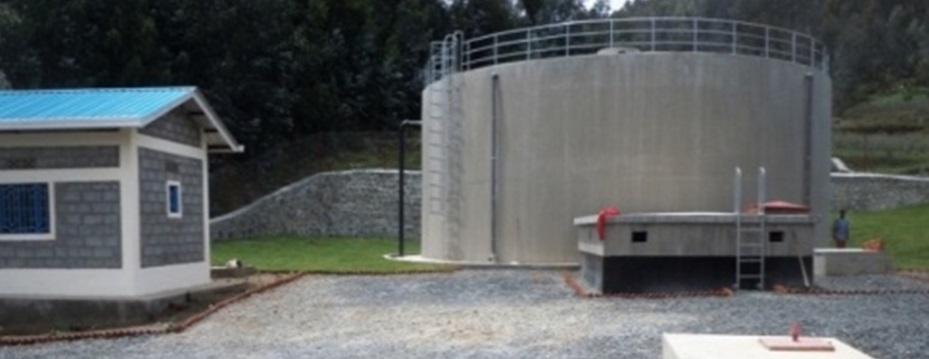Kigali, 9th June 2014
The Rural water supply and sanitation programme (PNEAR) was initiated by the government of Rwanda through the general assembly of African Development Bank in 2002 to support the African Countries in elaborating of their rural water supply and sanitation program to achieve the MDGs and to participate on funding as a financial institution, to mobilize funding to others donors.
The initiative started with five countries; Rwanda, Uganda, Ethiopia, Ghana and Mali In 2003.
The GoR and ADB elaborated PNEAR which will be implemented in four phases, and two have been completed; Phase I from 2003 to 2009 and phase II from 2009 to 2013.
The main objective of the Rural Water Supply and Sanitation Programme is to provide sustainable drinking water supply and sanitation services to rural communities with a view to improving their health.
This component includes 16 piped water supply, 1000 protected natural springs and 100 rainwater harvesting tanks serving over 642 000 people with clean water and have cut the distances covered to go and fetch water. The objective of clean water at a distance of less than 500 m away has been achieved. 16 piped water supply have a total length of 433 km allocated in different districts ; Nyamasheke (54 km) , Rutsiro (106) km, Karongi (120 km) , Rulindo (83 km), Gicumbi (29 km) Musanze (41 km) , 203 water tanks and 664 water points (BF).
758 have been protected. The remaining sources are part of the new proposed piped water system to supply the new settlement areas – Umudugundu (Community settlements) – where people have been re-allocated.
The success of the availing the water to the people has created even more aspirations for clean water and in some instances, discussions with the local committees and the local administration, has resulted in the extension of the piped systems and increased Water Points (taps at different centers) than had earlier been anticipated. Rainwater harvesting tanks were built at public institutions like schools and health centres.
150000 households have access to individual family latrines and public latrines for sanitation promotion programs. The project constructed 130 ECOSAN - Public latrines. These latrines that are segregated to provide for different rooms for women and men, each have 7 – 9 doors and have an enclosed yard to which waste is allowed to dry before it is processed for use in gardens. The 15 districts all have benefited from the allocation of these latrines with 12 of the 15 having 9 latrines each and 3 of the 15 districts having fewer numbers (the district of Karongi has 7; Ngororero district has 7 while the district of Rutsiro has 8).
17000 latrines have been built in all the 15 districts. Under the Community initiative – Ubudehe – the latrines have been constructed.

 ENGL
ENGL KINY
KINY